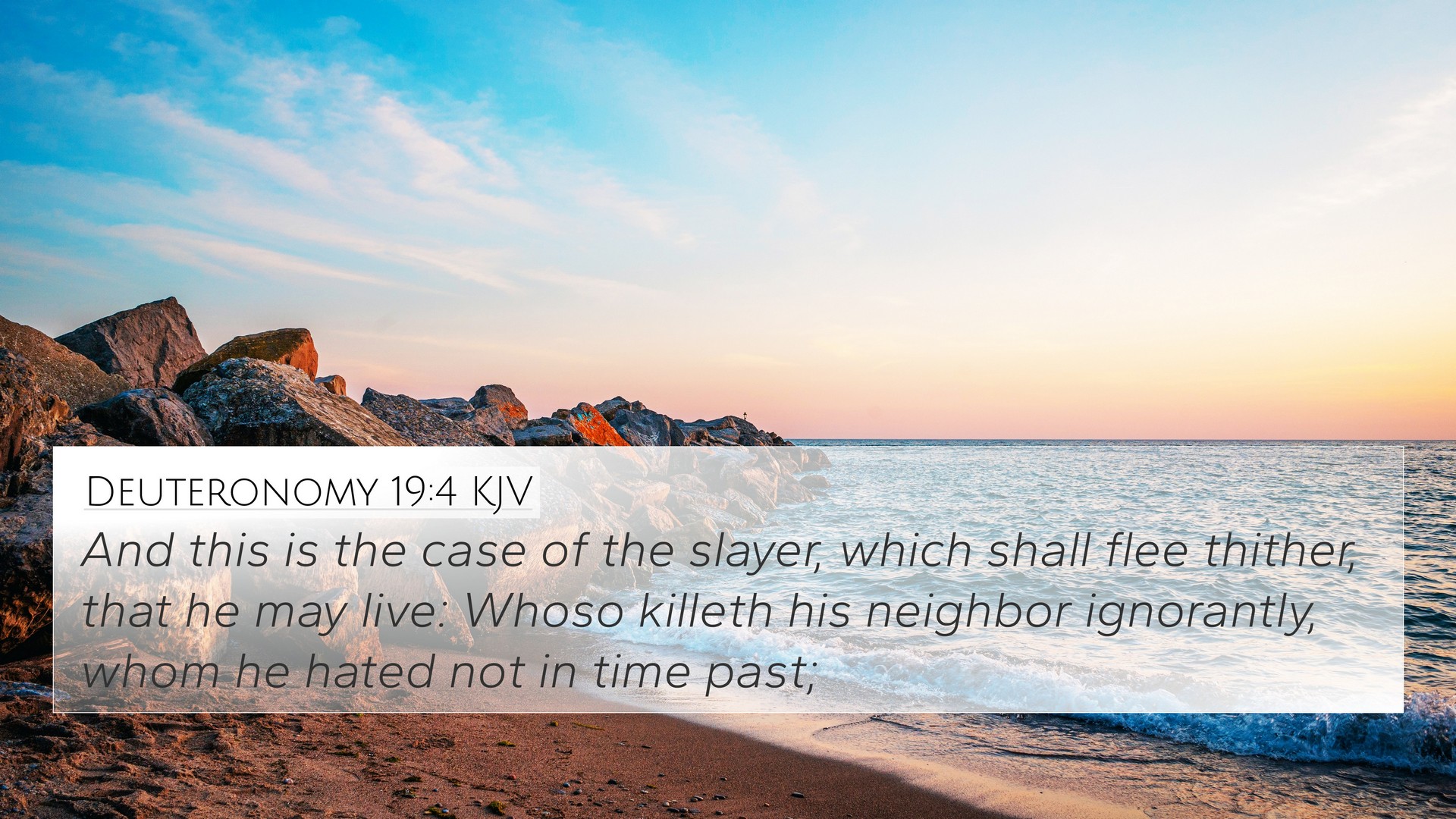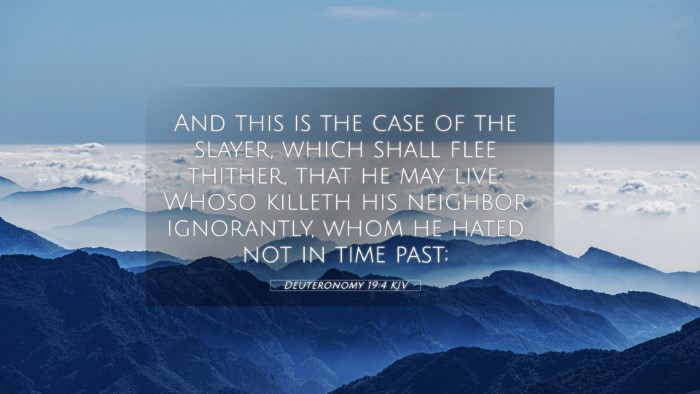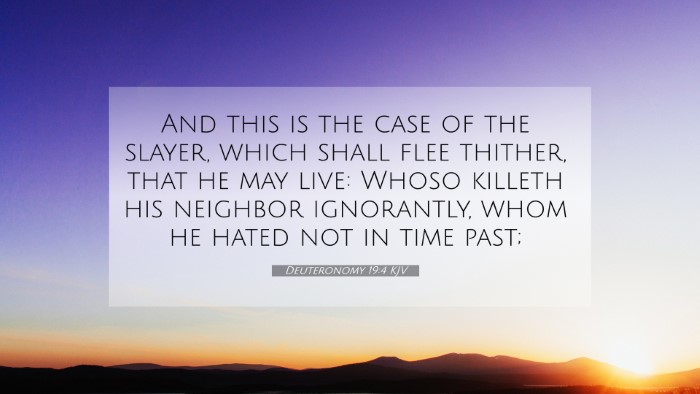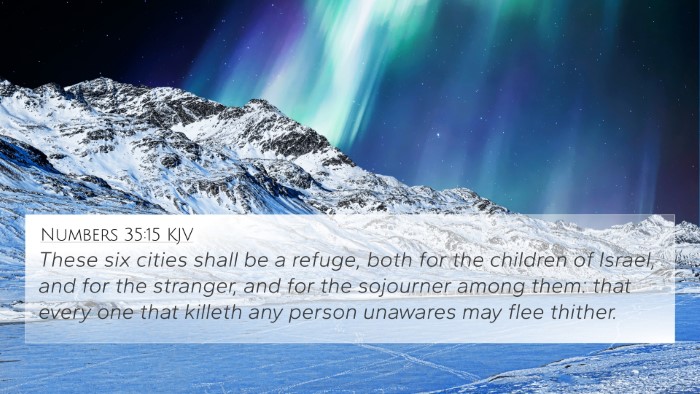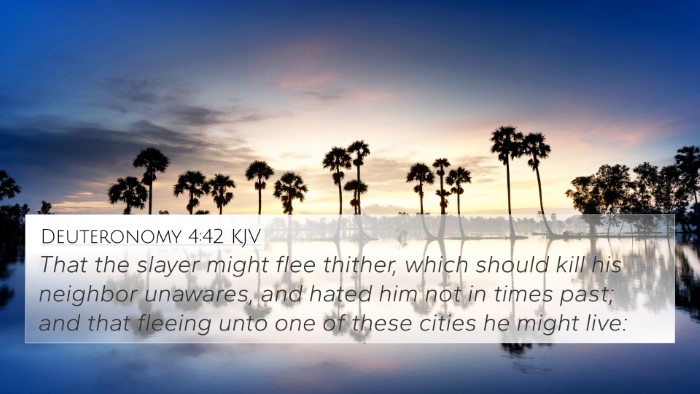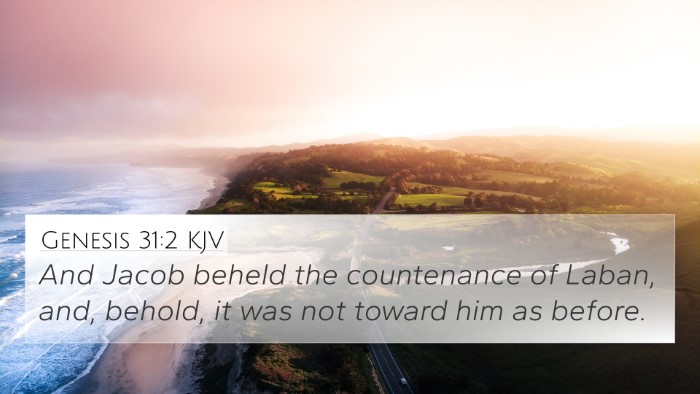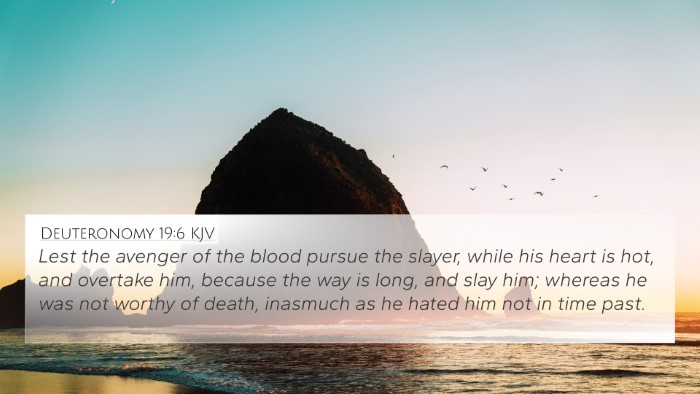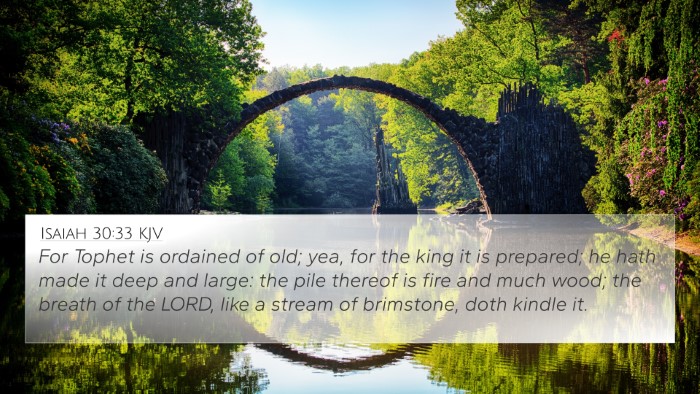Understanding Deuteronomy 19:4
Verse: "And this is the case of the slayer which shall flee there, that he may live: whosoever killeth his neighbour ignorantly, whom he hated not in time past."
Summary of Meaning
In Deuteronomy 19:4, the focus is on the provision made for those who unintentionally cause the death of another person. This verse is part of a larger legislative framework concerning the cities of refuge, designed for protecting individuals who commit acts of manslaughter. It illustrates the distinction between intentional murder and accidental killing, establishing a system that encourages justice while recognizing human fallibility.
Commentary Insights
The insights from public domain commentators such as Matthew Henry, Albert Barnes, and Adam Clarke provide a deeper understanding of this text:
-
Matthew Henry:
Henry emphasizes the mercy embedded in this law. He suggests that God understands the complexities of human actions and emotions, allowing refuge for the innocent who, through ignorance or accident, find themselves guilty of a severe act.
-
Albert Barnes:
Barnes elaborates on the importance of distinguishing between intentional and unintentional acts. He notes that this provision of cities of refuge not only serves as a legal safeguard but also reflects the character of God's justice, which necessitates mercy alongside judgment.
-
Adam Clarke:
Clarke points out the implications of "whosoever killeth his neighbour ignorantly." He notes that the Hebrew context supports the notion that understanding and intention are critical in assessing culpability. Thus, this example of civil law displays the balance between human imperfection and divine justice.
Connections to Other Bible Verses
Deuteronomy 19:4 finds various connections throughout Scripture, emphasizing themes of justice, mercy, and the sanctity of human life:
- Exodus 21:12-14: Discusses the distinction between murder and manslaughter.
- Numbers 35:9-34: Outlines the cities of refuge and their purpose for the unintentional killer.
- Matthew 5:21-22: Jesus elevates the moral understanding of murder, emphasizing anger as a culpable action.
- Romans 13:4: Affirms that civil authorities are ministers of God, bearing the sword for justice.
- Proverbs 28:17: Reflects the consequences of unresolved guilt, a theme pertinent in discussions of justice.
- Hebrews 6:18: Mentions God’s promise as a strong consolation for those fleeing for refuge.
- 1 Timothy 1:13-14: Paul identifies himself as a former blasphemer who received mercy due to his ignorance.
Thematic Connections
This verse and its related scriptures encourage a broader thematic analysis within the Bible, linking ideas of:
- Mercy vs. Justice: The balance between these attributes of God is crucial in understanding Biblical law.
- The Value of Human Life: Highlighting the sanctity of life and the seriousness of taking a life, intentionally or unintentionally.
- Community vs. Individual Justice: The cities of refuge serve a communal purpose, indicating a societal approach to justice.
Cross-Referencing Techniques
To explore the connections between Biblical texts, consider the following tools and methods:
- Utilizing a Bible concordance to locate keywords.
- Employing a Bible cross-reference guide for thematic study.
- Engaging in cross-reference Bible study for deeper insights.
- Focusing on Inter-Biblical dialogue to understand the relationship between different Scriptures.
Conclusion
Deuteronomy 19:4 serves as an essential reference point for understanding God's justice and mercy in the legal system established for the Israelites. By examining this verse in conjunction with related scriptures, one can grasp the overarching Biblical themes regarding human actions, divine justice, and the provision of grace for the unintended transgressor.
